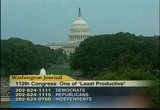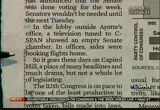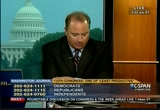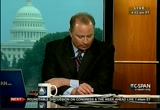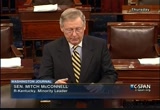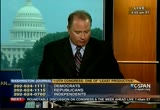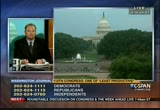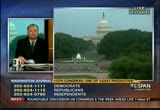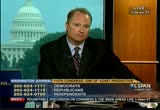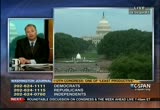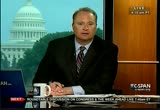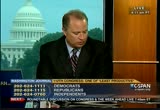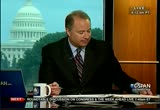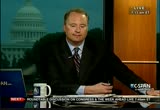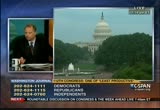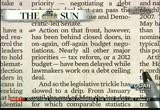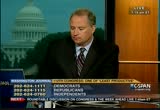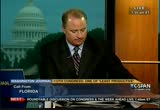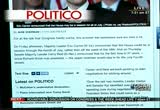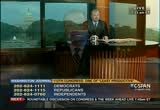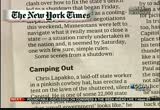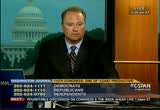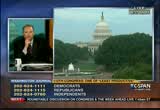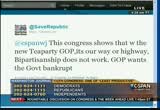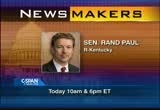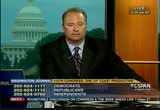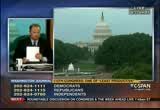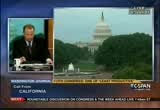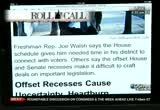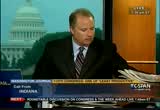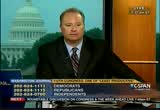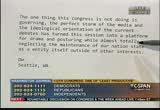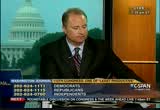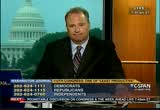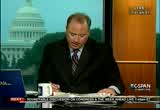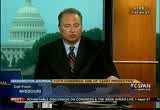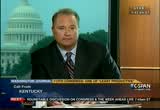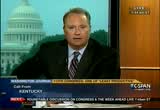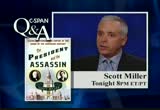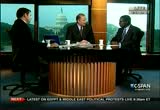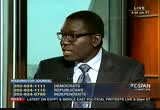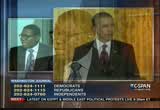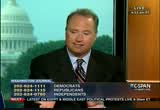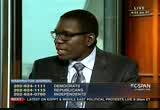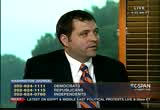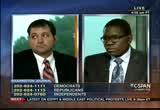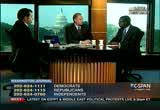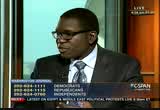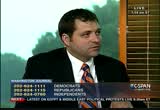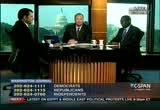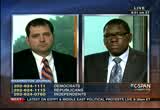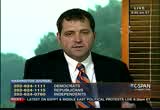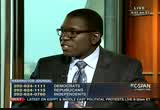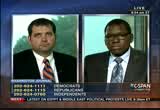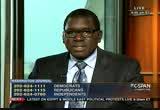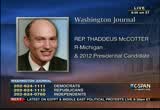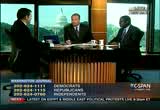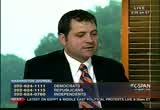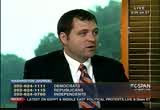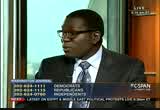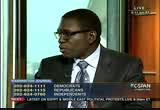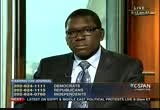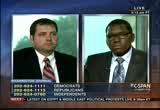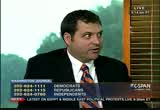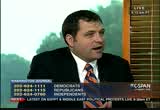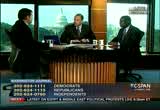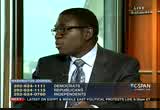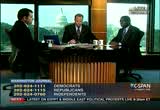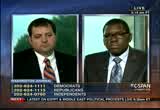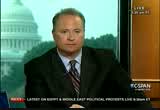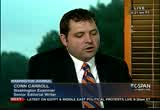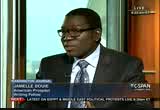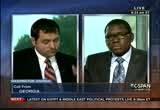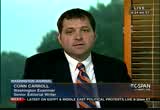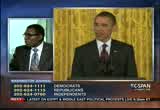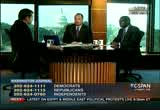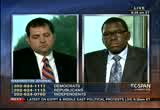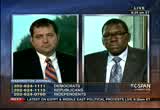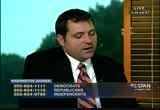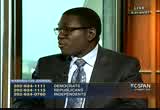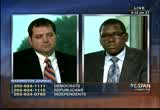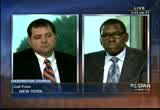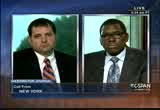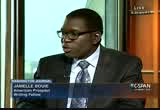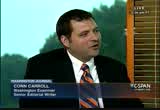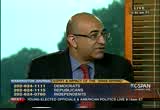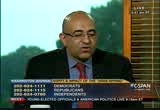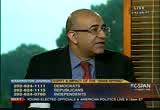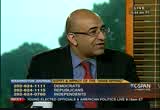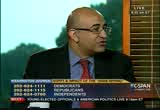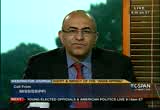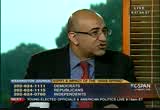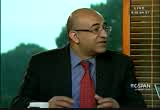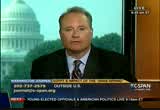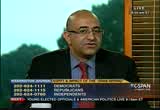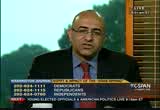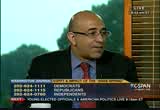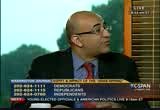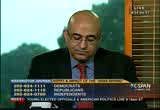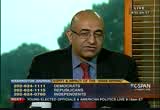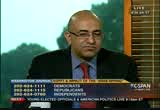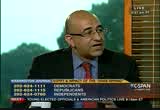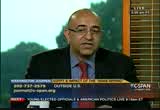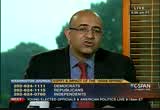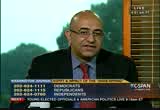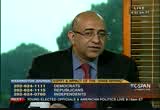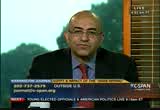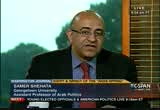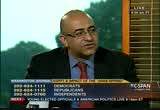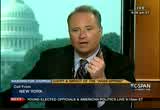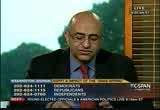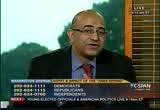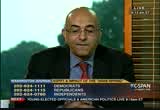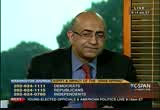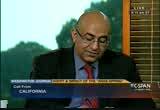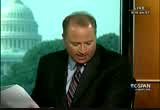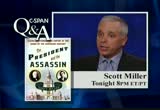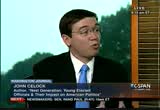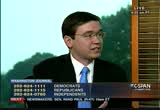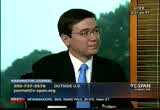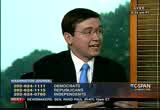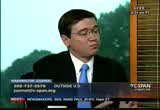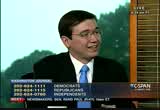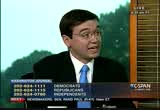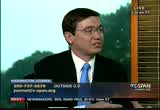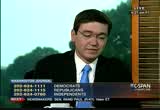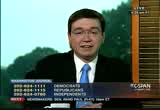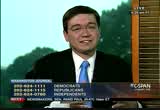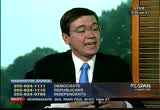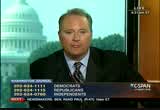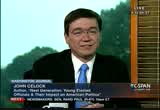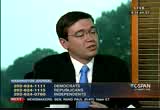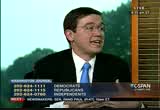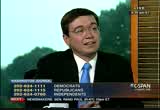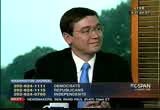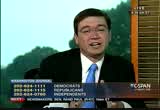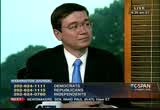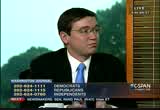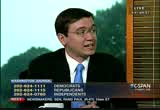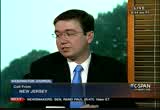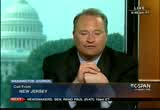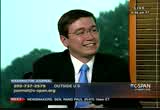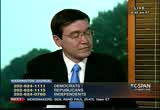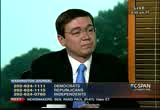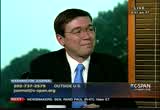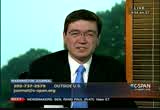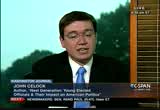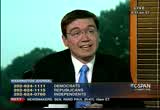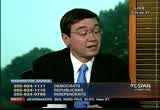tv Washington Journal CSPAN July 3, 2011 7:00am-10:00am EDT
7:00 am
revolution in egypt and the broader impact of the ever spring on the middle east. later, we will discuss the book "next generation." "washington journal" is next. ho host: even though the u.s. and that has canceled its july 4 recess and the house may cancel one of its brakes later this summer, one newspaper article says congress' foot is on the brakes. it is on the pace -- on pace be one of the least constructed in history. we want to get your reaction and hear what you think marcia door should not be doing.
7:01 am
-- what you think congress should or should not be doing. republicans -- (202)624-1115. democrats -- (202)624-1111. independents -- (202)624-0760. this piece is published in the baltimore sun today. senator ayotte is asked about what surprises her most. the and complicated reply -- uncomplicated reply --
7:02 am
7:03 am
president obama about the work that needs to be done here in the district. >> right after we finished dealing with the government shut down, averting a government shutdown, i called leaders, i said, we have to get this done. i put vice president biden in charge of a process that, by the way, has made real progress, but these guys have met, work through all of the issues -- i met with every single caucus for an hour to one-and-a-half hours each. republican senators, democratic senators. republican house, democratic house. i met with the leaders multiple times. at a certain point, they need to do their job. host: we will hear from the other side in just a moment. all little bit more from this piece -- a little bit more from this piece.
7:04 am
7:05 am
them. that is what the president was trying to defend yesterday. who really thinks that the answer to a $1.60 trillion deficit is the second stimulus, that the answer is more deficit spending? where in the world did that idea come from? that is what the president was trying to defend yesterday. i would like to invite the president to come to the capitol today to meet with senate republicans any time this afternoon he is available, to come up to the capital and meet with senate republicans. that way, he can hear directly from senate republicans -- directly from senate republicans why what he is proposing will not pass. host: of course, debt, taxes, spending -- the current issues here in washington.
7:06 am
this chart talks about a little bit less action compared with recent years. congress has passed fewer measures since may of this year's since any year -- of this year in any year since -- you can see the shading of the senate and house. there is a point that there were well over 600 bills passed in 2007, 300 this year so far. you can see the action of the last decade and a half. one article says that this congress is on pace to be the least productive in memory. we have a caller from florida. good morning. caller: i have never been discouraged about the political process. all they do is squabble with each other. they are so worried about getting reelected that they forget who put them there.
7:07 am
i'm 58 years old. it is very discouraging to me. i do not see the real leaders of the people who could stand up and really make things happen. they are all just chasing each other around and sound bites. i heard, you said this, i feel like i am back at school. host: is there a way out of this? is there a path forward? caller: i think it would take more than what we have got. i think politicians -- all of them -- they need so much money to get reelected that they have to become beholden to the people who give them money. host: you are an independent scholar. do you see one-party better than one or the other -- caller. do you see one party that is better than one or the other? ?
7:08 am
i think the way out is to get the money out of it. -- caller: i think the way out is to get the money out of it. i am for public financing. when people buy stuff for me, i feel beholden to them. that is what our political system is based on. host: dearborn, mich., john on our republican line. what do you make of this congress? i think we lost him. let's try charles in georgia, democratic caller. are you there? taller >> i am here. -- caller: been i am really sick of the democrats accusing the republicans -- the republicans accusing the democrats and doing nothing when the 111th congress was one of the most productive in the years. the economic advisers are releasing data saying that the stimulus measures changed three
7:09 am
or 6 million jobs. when bush was there, -- i am recent college student looking at $25,000 in debt. in the future -- people looking at their future, students, younger students, they are worried. i agree with the caller. we are worried about what is going on. i wish they would stop arguing about points that they cannot prove one and a% one way or another. host: let's hear from -- per 100% one way or another. let's hear from bob. >> -- caller: if they can give back to a simple majority rather than a super majority, they would probably get some bills through. they should be required to work more than what they're working. there are the most overpaid and underworked people in the united
7:10 am
states. host: the senate decided to cancel their break this week. what does that mean to you? caller: it means it is all show and no go -- though -- moredough. -- no dough. i am an independent. the two-party system has to be destroyed. they have to do like virginia and where you do not have to vote the way they register. these to the parties are excluding at least 1/3 of the population that could vote in the primary. that is where it is important, not the general election where it is a twist of to the evils -- twist between two evils. host: we have a caller from
7:11 am
florida. caller: we have a $1.60 billion deficit. i do not want them passing spending bills. i do not want them spending more money. i want them doing the people's business, which means stopping all this. listening to these independent -- let's have them as a simple majority -- it is a joke. let's have them be a million different parties like the art in europe and see when anything gets done. we have a good system, the problem is that it has gone off the rails because of all, and all the nasty things that he has done. anybody can -- the nutty things he has done. anybody who thinks that it is ok to borrow 40 sons of a dollar -- you are looking at people -- 40 cents out of a dollar. it is not a question of passing
7:12 am
50 bills. it is a question a pass in one bill. host: thank you. @cspanwj is our twitter address. here is wone -- one. "the congress that does the least is the best congress," according to one of our viewers. lot more of your calls on upper -- the 112th congress according to one piece, one of the least productive. barack obama called on congress.
7:13 am
>> i am very amused when i hear comments that the president needs to show more leadership. i have been here. i said we have to get this done. there is no point in procrastinating or putting it off. we have to get this done. if, by the end of this week, we have not seen substantial progress, we're going to start having to cancel things and stay here until we get it done. leaders, at a certain point, rise to the occasion. leaders are going to lead. host: that was from the national republican senatorial committee. what is your take on the current congress? caller: my take is that, from watching the media, i find that there is not too many
7:14 am
politicians that think holistic thistly -- holistically. most of the difference you see -- they are extreme positions. it is kind of like senate he requires a person to look at things -- sanity requires a person to look at things in the big picture. when you start going to one extreme or the other, you're not going to get anything done. everybody's egos are going to get hurt constantly. so, you know, there are so many different ways that they look at things. for instance, holistically, people that have been paying into social security have basically been paying with ious and stuff like that for a very long time. they are saying everybody has to be on the table. we have been on the table for
7:15 am
the longest of time, giving i'll use. they actually said, ok. it is like looking at soldiers in iraq and saying, well, you have to put yourself on the table. that is the way to look at some of these things. i think that, if we get more congressmen -- it is difficult when they are being paid by big business and stuff. they say extreme things so that they know big brother is noticing that they are putting their plugs in for them. winning campaign financing to keep the map the point -- we need campaign financing to keep them at the point where they can look at things holistically. host: thank you for weighing in.
7:16 am
7:17 am
c-span. host: we think so as well. caller: do not rely on fox news. they should see for themselves what these people are doing. it is awful. host: what is the answer? caller: the answer -- i do not have the answer. if we could take the bipartisanship out and work together and try to accomplish something, i would be impressed. as for now, i am ashamed of them. host: there is a related tweet. at the other end of the building, this piece in the baltimore sun --
7:18 am
7:19 am
people." -- "we, the people's" money. if all of the democrats and republicans send in $100, $200, the problem would be solved. everyone would be happy. host: tommy on the democratic line from nashville. caller: good morning, c-span. good morning, america. what i have to say is that the republicans -- not to get on them all too much -- because it is doubled she -- the whole shebang -- the republicans are yet to put any jobs out there. the public media do not hold the republicans' feet to the fire. the republicans said they would
7:20 am
pass confrontational loss. they pass something that said the senate did not have to pass, the president did not have to sign, and it will become law anyway. it is crazy talk. it will not get us anywhere. matter of fact, it leads us into a deeper hole. on our debt ceiling, they do not tell us that $5 trillion of the $14 trillion is owed to social security. if you want to be a protector of that, let's go to al gore's lockbox on social security. do not let them borrow no more. host: let's move on to james in fort lauderdale, florida, on the independent line. congress is on pace to be one of the least productive in the view of this one writer. what do you think? caller: i think it is mainly because of the problems -- there are a lot of good bills, but
7:21 am
they keep adding addendums, and those are the sticking points. we have 98% of the people in both houses who are attorneys. they squabble over every little thing. the biggest thing -- i really do not like about any of that -- they ought to eliminate the legalized bribery that they call lobbying. host: politico the magic sharon -- political, and jake sherman.
7:22 am
7:23 am
caller: we had one caller described the 111th as the most productive congress in history. while it may have passed a very large number of bills, some of which may have even been read, one that did not pass is the bill that was required by law to get through. now we do not have a budget again, since the upper chamber has not seen fit to introduce one. host: your thoughts? caller: my thought is that one party seems to be afraid to clearly state what they intend to do with the people's money because they are afraid that the is setwill albalk if it out clearly and not ambiguously what is going to be spent.
7:24 am
host: thank you. now maryland, marianne. caller: i am afraid that it exact opposite view. i feel like republicans are showing their true colors by wanting to cut social security and medicaid and refusing to even consider raising any taxes on the ultra wealthy or cutting any subsidies to the giant farm corporation for oil companies. they are making money hand over fist. at voting time, i think the american people may see where their interests lie. host: thank you for calling. one caller talking about budget matters. the government or parts of the government in the state of minnesota have shut down -- a couple of days of shutdown. the new york times -- "the new york times" reports.
7:26 am
may went on to talk of various parts of the state -- they went on to talk about various parts of the state. it is a small, but important part of the larger debate. flint, mass., rate cut, good morning -- rick, good morning. what do you make of the current congress? caller: i think about the same as the american people. they do not want to see the truth. read some good magazines. they need to cut defense and hahnemann's -- defense, entitlements, other areas, and raise taxes, so that we can get back on track. "time magazine" had an article about how to cut 1/3 of the military budget. the and not want to seem to think about the military future. -- they do not want to seem to
7:27 am
think about the military's future. you can read about magazines print -- read about it in magazines. many of the people who died of cancer at chemotherapy within one month of dying. that is a waste of money. no one -- they are afraid to address it. people have to upset that everyone has to take cutbacks or else we will all be like agrees. host: jim, atlanta, georgia, thank you for waiting. what do you make of this congress or to mark -- congress? caller: you ask people to have less responsibility in life. if democrats do not understand that the money is just not there anymore -- bill clinton gave free trade status to china.
7:28 am
we have lost jobs and industry. if we do not have the money. we are running a $1.50 trillion deficit. it is not a revenue problem. it is a spending problem they airplane games behind closed doors to try to attack the playingans -- --they are games behind closed doors to try to attack the republicans. it is aggravating that they are making it harder and harder to produce energy and keep costs down so that people will pay the taxes -- federal income taxes have to subsidize that. it is really annoying to watch. i sometimes wonder how black people bolide democrats when they will not be able to go to churches -- felt like the democrats when they will not be able to go to churches that they want to -- it just goes on and
7:29 am
on. host: here is a tweet on all of this. we want to let you know about our "newsmakers" program. senator rand paul, republican of kentucky, will be our guest at 10:00 a.m. this morning. he talks about senate conservatives and their plans. >> i am part of the freshmen group in the the senate that says, no more. we will not let them go -- in the senate that says, no more. we will not let them go to any issue. many of us in the conservative wing are going to present our own proposal next week -- raise the debt ceiling. we will vote in favor of raising the debt ceiling next week if we can, contingent upon passing a balanced-budget amendment to the constitution.
7:30 am
host: senator rand paul of kentucky on our "newsmakers" program right after this show at 10:00 a.m. eastern, with a replay at 6:00 p.m. atascadero, california, nancy. what are your thoughts on this current congress? caller: i think that the bipartisanship is not working. i would like to see the budget come down to both spent in cuts and tax increases. that is the only way we are going to get through this. i am happy to pay more taxes. unlike the person before. there is right and wrong on both sides of the aisle. unless everyone acknowledges that, we're never going to get anything done. we are paying people to do a job and they are not doing it. host: what would you do to lay
7:31 am
out a climate to get things done? caller: the worsened to their to work together and get a job done -- they were sent there to work gather and get the job done, not let the nation go down because of the extreme there for don extreme different ideas on both sides of the aisle. caller: i agree that, then contributions -- that campaign contributions are nothing but legal bribery. these people have all of the power. our jobs are in china. that is what you do not hear anything about the woman who was murdered by the israelis or the uss liberty. and netanyahu comes to town, it is nothing but money and influence. these guys only care about their own jobs, otherwise something would get done in congress.
7:32 am
7:33 am
we had a crew shoot that event yesterday. it will air at 7:05 this evening on c-span. paris, france -- mathieu. good morning. what do you make of this congress? caller: they seemed divided. it seems to me that the big issue is the battle between spending and revenue. is it possible to do both? it's very simple. the commodities transactions that take place in the united states -- regardless of the sheer amount -- should be taxed $1. that money should be targeted to the debt -- paying off of the debt.
7:34 am
i do not think that taxing or putting a fee charged on these transactions would prevent anyone from buying and selling shares. it seems to me you could raise billions of dollars in a very harmless way. people who are paying not be would be making money anyway -- that fee would be making money anyway. everyone would benefit. it is a simple idea that raises revenue, is targeted to the debt, and does not hurt anyone. who would object to that? thank you for c-span. i listened to everyday over the internet -- listen to it every day over the internet. host: thank you. now richard from bakersfield, california. caller: my thought would be that, being a republican, i would think that the republicans
7:35 am
would have went in while they had the talks about raising the debt ceiling -- something was mentioned about -- president obama made a remark about raising taxes on raising taxesjets -- on corporate jets, there was a congressman who walked out of the room because that was said. i do not think that was good. host: anything else? caller: i think the republicans are playing a bad game. host: a thank you for calling -- host: thank you for calling. here is a picture of joe walsh. the main point is the offset recess -- the house and senate
7:36 am
been in recess at different times -- being in recess at different times. you can read more at rollcall.com. we're getting your take on another write-up this morning, in "the baltimore sun," by katherine hennessey. your reaction the next five to 10 minutes. john? caller: i think that guy from paris had a good idea. we should look into that. what is wrong is congress.
7:37 am
we have all of these radio conservative d.j. is -- deejays. we have the republican party. it is gloom-and-doom. no wonder people are not buying anything. people are pulling their money out of the stock market because they are afraid this guy is falling -- the sky is falling. we need to go out and spend money. that is what we need to do. host: noreen, crestline, california. caller: good morning. god bless america. there are so many bad things about america, but there are some any good. we have wallabies resources that we need -- have all of the resources we need to run this country and get things working like they were years ago.
7:38 am
until we can get all the green energy going, we need to use our own resources, and we haven't. and if we did that, i know things aren't going to get as fast as we want it to, but, in the meantime, we still have to live. and everyone i know is suffering and is not living a lifestyle that they had. host: thank you for sharing your thoughts. here are a couple of females -- e-mails on this. "one thing this congress is not doing is governing --
7:39 am
here is another viewpoint. plantation, florida, tom, a republican. good morning. taller >> good morning. i think that the congress -- -- journal@c-span.org caller: -- caller: i think that the congress is been unproductive because their goals are off. their goal was to get elected. they have not come to a conclusion and moved together on any boat. -- vote. host: what sort of changes would you advocate in the process? caller: i think democrats would
7:40 am
hate me for saying this, but i really do think that one of the rules they should go by is to have a manacle -- a presentation of each party's plan and show how that leads to prosperity. there is a lot of talk. there is a lot of wives tales -- wives' tales points of view out there that people are shouting out that do not have any factual basis that inflame people. let's get to the point where people are not shouting. let's give and take. i am at the point -- i am a republican. i am at the point now that a bad bill that unifies this country is worse -- would be better than what is going on right now.
7:41 am
somebody has got to -- i guess each party has got to say, we will give this, but we will be able to tell our voters that we got that. i think everybody knows that is the way this has got to end up being. host: tom from plantation, florida, thank you. you probably know that this is the week that atlantis is set to make the last shuttle flight. it is scheduled for late friday morning. here is the headline, "final countdown."
7:42 am
the article says that nasa has no means to get american astronauts into space in the near term, other than buying a seat on one of the russian's aging soyuz aircraft. a couple of different takes on a massive program. it is leading up to the last mission this friday. look for a lot of talk on this program, "washington journal friday on that launched and the future -- "washington journal," on that launch and the future
7:43 am
of the program. good morning. caller: i would like to comment on the topic. i'd think what would help is to have term-limits. these guys get into offices and they make careers out of it. host: what kind of limits would you suggest? caller: 1 term for senators and at least two terms for congress. host: 6 years for the house, 4 for the -- four years for the house, 6 for the senate. caller: they just do not care about the american people. host: joseph, an independent caller from kentucky. welcome to the program. caller: hi there. the main reason i think congress
7:44 am
is at a standstill is because they are afraid. they have the people, they have the needy -- media bearing down on them about the budget, the debt ceiling. what do you expect them to do in a short amount of time? these things take time to analyze and figure out. you are asking them to raise the budget limit or lower the budget limit. what are you expecting them to cut? what are you expecting them to say, ok, we want to spend more or decrease -- people do not know what the government spending is on. so, how are you -- how my trying to say this? -- how am i trying to say this? look at a federal program that gives money to veterans. our use and they should cut that -- are you saying and that
7:45 am
they should cut back? this is my first time calling. host: we get the point. we will be will call back many times over the years. welcome to the program. glad to have you. thank you to everybody else who called. we have plenty of time to talk about congress and everything going on later in the program and in the weeks ahead. in about 45 minutes, we're want to take a look at egypt, get an update from the country there in north africa and hear what is happening with the political situation. our guest will be a georgetown university professor. after this break, we will talk more politics and legislation and afghanistan with our roundtable, conn carroll and jamelle bouie. be right back.
7:46 am
7:47 am
i think that people lay down a seed of hatred. >> watch this discussion monday at 6:30 p.m. eastern on c-span. >> monday night on c-span, look back at president nixon's foreign policy. members of his administration and the president's son-in-law discuss topics including communism in china, invading north vietnam, and the 1967 war in the middle east. >> the discussion then in the newspapers were nixon's secret plan for peace. what was it? of course, he never talked about it. that was rockefeller pushing nixon to say something, to expose what his plan was. rockefeller did not think that nixon had a plan.
7:48 am
he comes in after a hard day of campaigning. he liked to listen to stokowski -- tchaikovsky. should i ask him? what's your plan? andgoing to go to peking vietnam. that's how we will bring about peace. >> watch the discussion monday night at 8:00 p.m. on c-span. >> he decided several days before mckinley arrived that he was going to kill him. he followed mckinley's were about in the newspapers, which were reported in great detail, and he began tracking him. >> on september 6, 1901, the self-proclaimed anarchist fired two fatal shots at president
7:49 am
mckinley. tonight, scott miller looks at the president and the assassin and the changing era in which they lived on c-span's "q&a." the latest season and even from the campaign trail, information on the candidate -- latest seasonal events from the campaign trail, information on the candidates, visit us at c- span.org/campaign2012. >> "washington journal" continues. host: joining us at the table, conn carroll of "the washington examiner," and jamelle bouie. thanks for coming by. guest: thank you.
7:50 am
host: we just heard from viewers about the congress, about it being the least active in some time. what is your take on the current congress? guest: i would agree that congress has been a little bit inactive, but i think that is ok given that the 111th congress was one of the most active in recent history. i'm paying less attention to the debt ceiling negotiations than to how congress and the senate is coming to agreement on it and reducing spending, cutting spending. any hoping there aren't serious cuts to programs like medicaid, food stamps, income assistance to low-income people, simply for the sake that we cannot have deficit reduction on the backs of the poor and
7:51 am
working class. that is not where the money is. it just seems cruel, in my view, to be cutting spending on those programs. host: conn carroll, the current congress? guest: jamelle is right. it is connected to the 111th congress. if you look at the first three months of the session, they were cleaning up what happened in the last congress. you have the first few months gone. immediately after that, there was the debt ceiling, which the 111th congress could have passed in december. instead, you have harry reid telling reporters that they want to delay the debt ceiling vote in order to get republican buy- in. you have to keep choices by the 111 congress -- key choices by the 111th contress to -- congress to kick the can down
7:52 am
the road. guest: he definitely wants corporate-jet owners to pay. americans always say they want the rich to pay more, but they do not realize how much the rich are already paying.the once you educate them and tell them how much taxes the rich are already paying, they say, oh, that's fair. host: can you see a point where taxes go up any time soon? guest: the only way i could see that is the president obama, next year, manages to keep republicans and democrats from trying to extend the bush tax cuts to both high-income earners and also middle-class families. i think, given the size of the
7:53 am
deficit and given the size of our debt problem, raising taxes on the middle class by two percentage points is a smart and intelligent thing to do. the clinton economy was not disastrous for anyone. i do not imagine the clinton era tax rates would do anything terrible for our economy. host: the phone numbers are on the bottom of the screen. we are taking calls from democrats, republicans, and independents. we're talking about taxes, the debt ceiling, policy. you can talk about it with are two guests -- our two guests, conn carroll and jamelle bouie, who is a riveting -- writing fellow for "the american prospect." one poine was made that --
7:54 am
point was made that suggestion, once they can get the debt ceiling taken care of, they could get something else done. what would be top of your list? guest: i really do not seem much getting done. they have other issues. one thing that obama touched on was free trade agreements. he needs to satisfy his base. he needs to include about $1 billion in trade-adjusted assistance. i do not see a lot getting done, even if we get the debt ceiling out of the way. host: jamelle bouie? guest: i do not see a lot getting done. i would like to see more stimulus put into the economy. the administration has been mulling over a tax cut for employees and employers, but
7:55 am
studies suggest that would not do much for the economy. i would like to see a larger tax cut on the payroll side for employees. i really doubt that will actually make headway through congress before -- congress. host: do you say this debt ceiling thing going right to the brink on august 2 -- see this debt ceiling thing going right to the brink on august 2? guest: i do. adding that democrats are flirting with the 14th amendment of democratshat are flirting with the 14th amendment option. i am curious to see what happens. host: conn carroll, august 2nd? guest: i think they will blow
7:56 am
right past it. there are no legal grounds for the 14th amendment argument. i think the deadline will come around. obama will tell geithner to sell treasury bonds. there is no way anyone can stop them. host: pam, a republican, st. louis, missouir. missouri. caller: i thank god everyday for the people that the tea party elected. president obama, who likes to get up and say that millionaires and billionaires need to pay their fair share -- i do not think that somebody making $250,000 is a millionaire or billionaire. it is not hard to get to that threshold if you have two people working in your family. i hear some much that we need to
7:57 am
have safety nets for the poor. i agree with that for the truly poor. you have child and -- child earned income credits. the gal who accused the imf die of rape -- she had -- guy of rape, she had tax debts. host: what has been the impact to this point? what do you see in the months ahead on this fiscal issue? guest: the tea party has had a tremendous impact on the congress. you can look at the debates. i mentioned what harry reid said about getting republican by-in -- buy-in on the budget and that is why they did not pass it on december -- in december. host: a big push from
7:58 am
republicans on a balanced-budget amendment. that issue has come back to the forefront in the gop terms. what is your reaction to that, their current mantra? guest: i think the balanced budget amendment might be the worst idea -- would not say ever, but it is pretty terrible. putting a cap on total spending -- i think the house is saying 80% of gdp -- that would cripple government. it would require massive cuts to existing services, up to 70%, but it would -- in the event of recession or war, it would sharply limit what the united states could actually do. i do not imagine -- quick spending for military action -- i do not imagine that happening at all.
7:59 am
requiring the 2/3 votes for tax increases would put this in the same situation as california is right now. they are virtually not capable of dealing with their budget problems because it requires a 2/3 majority to pass a tax measure. that has crippled the government. host: conn carroll? guest: do i have to? [laughter] i am not against the balanced budget. i think it is a way to kick the can down the road. we have our real cap on what the government can spend with the debt limit -- a real cap on what the government can spend with the debt limit. banner will have to start cutting spending by 44% -- geithner will have to start cutting spending by 44%.
8:00 am
i think conservatives should make the case for cuts now. later, completely by itself, you can support a balanced budget, but, right now, i'd think it is a distraction. caller: one of your guest made a statement about the wealthy paying the majority of the taxes. that is true, but they are also burning the majority of the income, the profits. if they are tired of paying more taxes than anyone else, it seems the algorithm so that the financial structure so that the people are making most of the income. thereby, they will pay the majority of the taxes. that is a simple solution.
8:01 am
host: on the republican line, susan from new hampshire. susan, turn down the sound on your set. caller: i cannot understand you. host: if you can turn the sound down, we can hear you lot better. hang on for a second and we will come back to you. we will go to north carlotta -- caller: the republicans leave out the whole truth. like medicare being a cause of the dead. the whole truth is that it is the entire health consider -- health care system that is causing this to be so expensive. medicare is only a part of that.
8:02 am
it is actually more efficient than the whole system. it will lead the people of united states with the most expensive health-care system in the world. guest: medicare is the driving factor in the dead. everyone on both sides admits that. all whole premise of a obamacare is that we will drive down spending for the rest of the system. there is an argument on both sides on how medicare shapes and drives the medicare costs. the only question is how that we're going to do about it and change the medicare system? democrats want to do it through a 15-member panel and paul ryan wants to do it through a more
8:03 am
free choice system. we're going have to change the health spending and the only question is how we do it. host: jamelle bouie? sure it's not accurate to say that. the paul ryan plan would not serve double as -- voucherize health care for seniors. while there are 50 people that are run elected, they are confirmed by the senate, so it is as democratic as the federal judiciary.
8:04 am
i do not think that medicare is the chief driver of the dead, and cutting medicare spending may not reduce the overall cut. host: let's go back to susan. we are glad that you held on. they keep returning your sat down. what is your comment or question? caller: it is actually of response regarding the balanced budget amendment in its potential for our nation. jamelle mentioned it would be the worst thing possible, but this is a paradox. how was it that you and i must live within our budget, our states and towns and municipalities must run with a budget, and it has been over 700 days since the senate has proposed a budget?
8:05 am
how could that be the most -- the worst possible thing to face our nation? if we must, why must not the federal government do the same? guest: adding a budget is not as terrible thing. i think the federal budget should have budget passed last year. but the balanced budget amendment limits at the programs drastically. unlike household or a state, the federal government has obligations and one of those is improving the economy during recession and paid for wars and wars actions like that. pay for infrastructure, a whole gamut of things that families do not have to deal with. that is why requiring a balanced budget is a bad thing to do.
8:06 am
and individuals do do similar things when you pay for a car for your child, you take out of debt. it is for future pay off and that is what the federal government often does. the amendment would drastic what we as a country can do. host: our guests are with us for 25 more minutes. they are jamelle bouie and conn carroll. i wanted to bring in some presidential politics. a congressman named thaddeus the cotter -- mccotter has announced. but what will they bring to the race? guest: he is a small government
8:07 am
conservative from michigan. he has some credibility but he has some black marks on his resume. he supported the automobile belau. talking to jamelle earlier, i don't expect what boaters' he expects to get. i do not know is marketed the republican primary. most analysts are mystified as to why he is in the race. why not another? guest: i am the same way. i am not sure which republican voters mccotter is aiming for. they are covered by herman cain and to some extent michele bachmann. i have a hard time seeing how he succeeds. host: as we talk about who is
8:08 am
running, there is a piece about who is not running. where are the governors? haley barbour was once considering running. he decided not to. among the many surprises in the gop race, the virtual silence of the governors. chief executives have played no role in shaping the race, either through nominees for through their powers of endorsement. where are the governors? guest: i was devastated when mitch daniels did not get into
8:09 am
the race. i thought he had a wonderful resume. he had everything it took to raise a lot of people. after that happened and daniels ducked out a lot. they are trying a fall in love with somebody. they're looking to mitt romney, in no one is capturing them. host: they may be looking at governor perry. he has been waiting for the legislative session to end. here is a headline. he could enter the presidential race but are of voters ready for another governor from texas? guest: i agree with the premise. i don't know if people are ready for another cowboyish the winner from texas.
8:10 am
i think he would meet some needs and cause some problems for michele bachmann in iowa. he has very strong ties to the evangelical community. he would definitely be a force if he entered. host: jamelle bouie, which of these candidates might get to the white house? guest: mitt romney and jon huntsman, because they are the moderates in the field. mitt romney was a good governor of massachusetts. i actually think that on the whole, anyone of the plausible candidates is a real threat to the white house. unemployment is near 9%, job growth is slow, income growth is slow. the economic fundamentals shows
8:11 am
that the white house should be worried about winning reelection next year. regardless of who is the gop nominee. host: there is a story in the politico that herman cain's top staff in iowa has resigned. guest: he also lost his new hampshire staff so that is a trend. her manner crane only reported $2.5 million raise, including a lot of seed money from his own personal fortune. the operative said he had hired, good people that know the system, looked at his campaign and decided that this was no longer of that they wanted to make. guest: i agree. herman cain was a boutique candidate. he impressed a lot of people but
8:12 am
when push came to shove, no one wanted devoted -- wanted to vote for him. host: carolyn sacramento, thank you for waiting. caller: what you're gas said about being kroll, taking away from medicare and medicaid, i happen to be a severely disabled 68-year-old woman buried my husband in blind. we are cut $100 on our ssi. took away our dental and eye care. now the teeth are calling out. they called the golden years. i'm also upset with governor brown because he did another cut on our ssi. hate the way they keep bringing up the cut medicare and make it a state bank. it is not the poor people
8:13 am
possible. these rich people in congress making the rules, it is their fault. picking on people that are disabled, about the middle of the month they are out of food, and it just incenses me that they cannot get it together. host: as go to new york. gerald is an independent. caller: under the 14th amendment, the president has the right to see to it that the bills of the government are paid. we already ran up the debt so we need to pay the bills. i don't understand why he does not just say, not paying the bill is a clear and present danger to the public order. therefore, i am going to direct secretary geithner to pay the bills. if congress does not agree, they can sue me.
8:14 am
congress would be the ones with the legal standing to go to the court. to say that he cannot do that. they are not going to do that because the democrats control the senate. i just do not see why he does not cut the whole debate off and say that we do need to cut the deficit, but let's negotiate that. that has nothing to do with paying our bills. host: we talked earlier about blowing past the august 2 deadline. guest: there is no easy way to stop obama if he told geithner to drop the bomb. there is some special standing granted to members of congress, including the debt limit. someone would have to show actual harm related to the decision. there are some members of
8:15 am
congress, if someone invested in a bond fund that shorted u.s. treasury funds and they lost money because their bonds ended up doing well, that person could show harbored we know from earlier reporting that eric cantor fits that description. a treasury employed part of the selling of treasury bonds, he could show harm. but it could not just be some general person who said, this trillion dollar debt somehow hurts the economy and therefore affects my life. it cannot be general harm. it has to be someone more specific. it would be hard to find someone like that. i mentioned eric cantor, but it would be hard for him to sue the government because i'd bet against the economy. you cannot make that argument politically.
8:16 am
i think it will be very difficult for opponents of the so-called 14th amendment option to challenge it in court. guest: i cannot i imagine other than eric cantor and i will look terribly politically to go out and say that, i am losing money because the economy is not crashing, to sue the obama administration. when it comes to standing, i would very much prefer a fix on the debt ceiling. but if push comes to shove, we need to pay our financial obligations. this is the spending that we have already done. this is money we have spent out of our pocket. it would be devastating to the market.
8:17 am
host: we want to get your brief take on minnesota. they are in a small government shutdown right now. barry relevant to what we're talking about. shutdown cost will bring sticker shock. there is a camping ground seen here. there is accessibility of the public lands there. can anything good come from a situation like minnesota? guest: i am not sure that it can. i think the republicans entertained the option and i do not know what lesson that would drop from minnesota. i think the clear lesson for all of us is that there are very
8:18 am
few lines of commonality going down to the states, and that this is largely the product of a right-wing republican party that has become radicalized, that has taken its anti-government ito's not to the extreme yet, but is getting there. guest: i think that this will be an instructive situation. anytime you get more data points in to the decision makers, it helps them make better decisions. you can see what happens when the government shuts down. you will have some type of resolution before august 2. i think that will help better inform the decision makers here. whatever happens in minnesota will affect washington. host: in kentucky, thank you for waiting, room -- robert on the
8:19 am
republican line. caller: i have a comment for the panelists and also for c-span. all wanted to get feedback from you gentleman on the subject of tax increases or corporate jets. i view it as throwing a pebble at a pond. corporations will not just sit down and take that. someone is going to lose their job. it takes people to fuel these jets, to do repairs and corporations are afraid that they're going to have to pay more in taxes in an economy -- i just see a lot more people losing their jobs. we already have 25 million
8:20 am
people unemployed. i think that is enough. i think we have a left wing nut in the white house, and in the congress, and she is not doing us any favors. i also want to comment that as far as c-span is concerned, you take in quotes from the "new york times." i also see that out to zero is on your news program. -- al jazeera is on the news program. as an american, i take offense to that. i just wish that c-span would give with the 21st century. host: who would you like to see us quote? caller: the drudge
8:21 am
report, the blaze. "than your time" is getting into a whole but you reported like it is serious journalism. host: talking about some of the tax situations out there. guest: you should read the "washington examiner." but on the jets, it is just class warfare. we're talking about $10 billion over 10 years. over that period, the government will spend $40 trillion. you do the same thing with this
8:22 am
court -- corporate jet thing. this class warfare rhetoric, he could raise revenues if the cut tax breaks across the board and lowered rates. you would get more revenues if you cut government loopholes and lower the rates. but obama cannot do that. guest: i am not sure if president obama's class warfare rhetoric, as you call it, is in the way of the deal. i think the republican party insistence that we cut spending for everybody but the rates is keeping the federal government from cutting a deal. he is right to say that the private jets would be a drop in the bucket. it is virtually no money being saved.
8:23 am
and also serious tax reform, cutting loopholes, would raise a lot of revenue. taxes are historic plea low. getting rid of loopholes is only one aspect remove back to something that is normal. if the obama administration is serious about tax reform, i would agree that corporate tax reform that involved cutting out loopholes in lowering rates would be a good idea, seeing as how we have the highest corporate tax rate in the world, even if they are not paying that tax rate. host: sally, a democrat, good morning. caller: i know everyone is talking about jobs, but i want to talk about the abortion
8:24 am
rights deal, and the gop will and the government cutting funds for planned parenthood. there are federal laws already were no federal funds are allowed for abortion funding. people go to planned parenthood would do not have insurance. they need to think about what is going on with the states with that. if they got -- if the gop focused on the jobs the way that they focus on abortion, everybody would have a job. guest: they could not do an absolute ban. so you see that on the state level, more regulations and taxes to make it harder and
8:25 am
8:26 am
what is your take on the action in libya? guest: i was skeptical when it commenced. i think that when we are fighting two for and now, we should not get into the third. as a progress, i have not seen a reason to revise the initial opinion. the administration does not seem to know what it is doing in libya. our goals are not particularly clear. and the farce of not calling it it is frustrating. i am willing to admit the limits and a whole host of areas. but when we voted for obama, we expect a change from the previous administration's
8:27 am
policies, not going to war on shaky -- not shaky claims, but shaky goals. host: the senate has canceled its july 4 break to keep work going on the debt ceiling talks. but we also expect them to take up the issue of libya this coming week. you can watch said on c-span2. conn carroll, what is your take? guest: it is the same deal with that chrysler bankruptcy and the debt limit. everyone is in agreement that obama is in violation of the war powers act. his top lawyers have said the same thing. but he says he is not. we're going to go ahead and do it. just like the debt ceiling, no one has the legal standing to stop him. this is just his m.o.
8:28 am
host: ian, an independent, what is on your mind? caller: i have a comment and a question. i have to say, i am 35 years old and i was a broker at morgan stanley and understand the economics and was a financial advisor. and i have never seen so much attacks on this president who is doing so many things on so many different fronts with so many issues going on in the world, both united states as a competitive nation as well as all the wars that were handed to him. for him to make a comment about corporate jets where i would say 90% if not more of the components are made in china through the large corporations
8:29 am
could then contain -- campaign and contributed to congressman on both sides of the aisle, whether democrat or republican, i think the majority of united states does not care. they want to see the direction that this country is going and what we are doing about it to become a competitive nation again. from aet's hear republican in south carolina. caller: i am concerned that congress in general, republican and democrat, are not doing anything constructive. all they are doing is acting like kids on a playground. i am not going to do this, i am not going to do this. what they need to do is cut the budget and raise revenues.
8:30 am
if i had a sudden expense that i do not have the money for, i have to go out and get another job or some other form of been come to pay for it. and that is what the government needs to do. reduce spending and increase revenue. get the economy going. host: i want to get back the foreign policy. afghanistan, the recent decision regarding the troops, conn carroll, how you see how that will play out? guest: wow. let me switch to afghanistan. they will start drawing down troops, 10,000 by the end of this year. it depends on what happens on the ground. i say that but it is not really
8:31 am
true. if you look at the date by which he will drive down the rest of the troops come in september 2012, that is not a date created by the military or by the reality of the fighting in afghanistan. that is a purely political date. it is dictated by politics in this country. what happens in afghanistan is irrelevant. the only thing that matters is what obama appeals will be best for his reelection campaign. guest: when it comes down to the commander in chief, he is the one that dictates orders for the military. we have been in afghanistan for almost a decade and next year will be over a decade. when it comes down to it, if president obama says that we need to be out of there now, regardless of what is going on on the ground, that is totally acceptable there will never be of point where afghanistan is
8:32 am
where we wanted to be. -- want it to be. i think he has done the responsible thing and left. host: last call for our round table. caller: i have two comments. the gop has had one agenda only since 2009 -- to defeat president obama in 2020. even if it means bringing thought only the country but perhaps the world to financial disaster. my second comment is regarding the corporate jets. $2 billion here and $2 billion there, it had sought ultimately.
8:33 am
-- it adds up ultimately. our ideology straight. guest: i really hope the gop has obama out by 2020. but on the jets, when you talk about the money we are decades past that and we're now talking about trillions. to be in dollars is just a drop in the bucket. host: our last call is an independent. caller: u.s. companies pay the highest tax rates in the world, but that is not true. the japanese companies pay higher rates. and the actual rates paid by u.s. companies are very much lower than the nominal rate.
8:34 am
and if i may come up i wanted to you about a dinner party that we were invited to a couple of weeks ago. there were seven couples there, the poorest adding $16 million in net worth, and our host for up to $500 million. our hosts asked us to set up identified our politics. two democrats, three independents, one republican, and one conservative. and then they asked if they would approve or disapprove of paying higher at taxes. everyone approved of paying higher federal taxes except for the one conservative. the constant reiteration that wealthy people are somehow extraordinarily irresponsible seems to be not to be entirely true. there are lots and lots of
8:35 am
relatively wealthy people who understand that the country needs more revenue and are prepared to help in that regard. make you very much for c-span. host: final thoughts starting with jamelle bouie. guest: obviously the economy is not doing well. unemployment and numbers, i do not expect them to be different from a. -- may. not only is that terrible for the unemployed people, the long- term unemployed, but it is bad news for the white house. presidents who are running during periods of economic downturn do not win reelection. i think a more constructive comparison is george h.w. bush,
8:36 am
a president who became very popular through foreign-policy actions but lost the election due to the economy. i think that the republicans can unify next year and put forward someone who is kind of credible on the economy, obama could lose. guest: you had george bush to cut a deal in the 1990's to raise taxes and the base soured on him. but he was very popular u.n. mixed, weak democratic field. and people forget this but bill clinton did not get in until october 1991. this is just my way of saying that there is still time for paul ryan to get in after the budget deal and the debt limit
8:37 am
is done. the people in the movement cannot wait to start working for you. host: our guests have been conn carroll and jamelle bouie. thanks to both of you for joining us. coming up in about 40 minutes, we will talk with john celock, who wrote this book. "the next generation." people who run for office at age 35 in younker. that is coming up in about 40 minutes. coming up after this break, you look at egypt and what is happening there. our guest is samer shehata of georgetown university. plus more of your calls. we will be right back. ♪
8:38 am
>> this fourth of july weekend on american history tv on c- span3, we will visit the smithsonian museum to learn about a 19th century u.s. government expedition to circumnavigate the globe and their treasure, 40 tons of specimens which became the foundation of the smithsonian institution. former first lady barbara bush on her time in the white house, planning her husband's presidential library, and her memoir. then a panel including mike mccurry discussing jfk and his relationship with the press. if the complete schedule at c- span.org/history. >> in the coming week, the house continues work on spending. all the amendment process and what other debates on spending bills that fund the federal
8:39 am
government at c-span congressional chronicle, a comprehensive resource on congress with a video of every house and senate session, the daily schedules, committee hearings, and more affirmation about your elected officials. c-span.org/congress. >> today on "in debt," linda hogan. her book focusing on native americans and women's issues and the environment includes "the woman who watches over the world," and her latest. join our conversation for linda hogan today at noon eastern on c-span2. >> we used and not released transcript of arguments and now we release them within a half- hour. he used to be that the audio recordings were released at the end of the term. now they are released at the end
8:40 am
of every week. so we are moving in a particular direction. cameras present all sorts of challenges in these areas. >>. howard youtube channel, watch chief justice john robert's comments on cameras in the court room. you can watch it online at youtube. >> "washington journal" continues. host: at the table now, samer shehata, georgetown university assistant professor on arab politics. professor, what is the latest on egypt? guest: president mubarak was ousted on february 11, so this is a transition period. we have the supreme council of the armed forces. it is headed by the military in
8:41 am
the have put in an interim cabinet. they have called for parliamentary elections in september. but the country is certainly unsettled. there is a great deal of political activity with different political parties forming, alliance is made, security issues. security is not fully back to what it was. there has not been reform within the security apparatus. the economy is faltering. so the transitional moment isn't settled. host: talk about the elections that you mentioned. in the last decades, we sought elections in which mr. mumbai won. what is different in terms of the process and the way that this might be played out? guest: as you know the january 25 revolution was against this authoritarianism and electoral
8:42 am
fraud. i have some faith that elections in the coming period will be significantly different. egypt has already experienced a referendum on march 19 in which the citizenry was asked to vote on a constitutional amendments that were put in the process of this transition period and would also modify the regulations governing the nomination process for presidential candidates. that went smoothly. people who lost those had some criticism, some legitimate, but there was no significant charges of widespread or systematic electoral fraud. i am confident that at least mechanically the elections, if held in september -- a sharp period from now and many in egypt are speculating that because of the logistics involved in getting elections ready, that those elections might even be postpose to december -- but i have some faith that if the elections take
8:43 am
place, they will be more than minimally -- have some integrity. host: a lot to talk about with egypt in areas in the middle east which we ask him specifically to come on and give us an update. we have phone numbers on the bottom of the screen. our guest is samer shehata, assistant professor for arab politics in georgetown university. you use the word unstable dairy political elections aside, what is all -- you use the word unstable. political election side, what else? guest: i said when settled. many people, the vast majority, are unhappy with the pace that reform is taking place. certainly mr. mubarak past try all has not happened yet.
8:44 am
there is a delay. there is some skepticism, quite rightly, about the democratic commitments of the supreme council of the armed forces. these are top military people, 16 of them, included in the ministry of defense appointed by mubarak, and there is some concern that they were shielding mr. mubarak as well as possibly other regime elements from prosecution. that is a very serious concern. there is also with regard to the security services, the egyptian revolution resulted in many deaths. they were killed by the security forces come about the use of excessive force, and so on. many of those involved in the killing have not been held accountable for tried or not even remove from their positions. there is a great deal of anger and frustration about that. in the traditional period,
8:45 am
people are arrested by the security forces are being brought up in front of military trials in a very expeditious way without full view process. there is serious criticism about that. host: where are the mubaraks right now? guest: mr. mubarak is in a hospital in sharm alshaik. the two sons, very prominent in politics and being groomed for the presidency, as many believe for the last day kidder said, are in prison outside of cairo waiting on a trial. host: back to the economy. a lot of people are not happy with the change of improvement. guest: the economy has suffered
8:46 am
through a revolution. you know that one of the major sources of foreign revenue, one of the pillars of the egyptian economy, is tourism. instability in change in government, the clashes that we have seen, have significantly affected the tourism. it is down 50% over the last month yourself. and foreign direct investment is somewhat jittery as a result of the unsettled nature of politics. that has also suffered. it is not a free fall for a collapse, but certainly not high rates of growth, not upward looking. host: let's get our first couple of call center in olive branch, mississippi on the independent line. caller: i heard about an arrangement for all the oil from each of, or a great rid of that
8:47 am
a great bit of that was going to israel, and they were not getting what they should. there were up in the care about this. what is happening with that? guest: i think the caller is referring to natural gas exports. egypt is a big exporter of natural gas in the region some of the countries that receive bids are israel and jordan. there has been a significant criticism of the sale of natural gas to israel because it was believed that the egyptian government was selling natural gas at below market prices. in fact, it has come to light that there was significant corruption taking place within the process of gas sales that included individuals close to mr. mubarak. this has caused a great deal of
8:48 am
anger. this is an raised a lot of people. it may be time to renegotiate the price, not only to israel but also jordan, and the pipeline through which the gas is exported to israel has been bombed several times since the beginning of the protest on january 25. host: 1 headline says that the imf has placed $3 million at the disposal of egypt. what is going on here? guest: this comes in the context of egypt reaching out to the world bank and the imf several months ago and the results of the economic situation asking for up to $6 billion in loans and aid. the imf approved it this money to egypt, but egypt has recently
8:49 am
redone its budget may be on like what they have been here in united states. they said that they are not in need of this money in the immediate future. they have reduced their budget forecast by 8%, and they are not going to necessarily go to the imf for those funds. they have managed to secure funds from other places come from gulf countries and elsewhere, and there is a political aspect to receiving money from the world bank. there's the perception and reality that all kinds of strings are attached, that these international financial institutions impose policy restrictions to cut subsidies, selling publicly owned assets, and so on, market liberalization, they have not gone known -- that have not gone over very well in egypt. it is been a source of disruption. host: online for democrats, good
8:50 am
morning. st. charles, are you there? douglas? caller: good morning. i am sorry for your question again? host: no question. we have a guest here and we're talking egypt. do you have a question? caller: yes, i do. you have little different sound but this is my question. if there were a poll taken in egypt and jordan, the question would be, should we tear up the peace treaty with israel? what does this gentleman think the poll would reflect? guest: there have been polls taken a danger of egypt over the last four or five months, and there have been statements made by many of the leading political figures. one of the first things that
8:51 am
happened after the revolution is that everyone who is important egypt, the supreme council of the armed forces, the former secretary general of the arab league, the leading contender, another contender for the presidency, the former director of the international atomic agency, they all say that the peace treaty will be maintained. is an international obligation and egypt will not change this. much of the polling shows that the difference have very mixed feelings about this very very critical of israeli policy in gaza and the west bank and so on. the colonization of the west bank settlements, and yet most egyptians do not want to go to war with israel and are in no position to do so. some have said that the majority of egyptians want to abrogate the street -- abrogate the peace treaty.
8:52 am
others have shown a small majority wanting to maintain it. the peace treaty is not going anywhere. the nature of the relationship between egypt and israel is likely to change. mr. mubarak was seen as an ally of israel, so much so that the palestinians suffered as a result of his relationship with israel very the other is his relationship with is your. relations are going to be much more matter of fact. i think -- and government will not be afraid of using his voice to criticize israeli actions in the west bank and gaza and elsewhere. there is a great deal of anxiety and concern in israel about the situation for a number of reasons. as we know, one of the things that ingratiated mr. bork was his animosity toward hamas and
8:53 am
his cooperation in the siege of gaza. egypt was essentially a party to the blockade. after that, they have not lifted but east that blockade significantly. the gaza border is open to civilians to cross, five days a week. the restrictions are significantly reduced. israel is concerned about the border. it is certainly concerned about what occurred in cairo several months ago. the reconciliation agreement to form a unity government, even though it has some problems over the last several weeks, the specificity of that. so there is a great deal of concern that a very pro-israeli allied to the egyptian government has fallen. in the egyptian government
8:54 am
becomes a power that is much more representative of the wishes of the egyptian people will have a much more critical position to israel. that is the concern in host: tel aviv our guest is samer shehata georgetown university assistant professor of arab studies. let's get some more calls. thank you for waiting for you are on the republican line. caller: please give me a second here. host: sure. caller: i actually like mubarak a lot. he was great for the united states. i even like gaddafi right now. i do not think obama has the right to tell anybody you have got to go. we had stability with mubarak. and our own country, if we were
8:55 am
getting into a violent protest, our government would ship them and arrest them. look at waco, texas. we rolled over their houses with tanks because it would not come out. the government will try to protect what they had and that is what mubarak did. the protest and the rebels started it, not the dictators. guest: joe is thoroughly mistaken. mr. mubarak came to power in 1981 and ruled for 30 years in elections that were regularly brought a lead through torture was systematic and endemic. corruption was very high. mr. mubarak and his cronies mismanaged the economy to know when 3 poverty in egypt is about 40%. there is no way that one can say that these authoritarian regimes are no good. we saw that in the revolution.
8:56 am
the same with gaddafi, in power since 1969, if you can imagine. libya is run as a family dictatorship with his son poised to be the successor. mr. gaddafi has decimated all libyan political and civil institution, taking the country backwards. it is mind-boggling to think that libya is a relatively small country and with tremendous oil wealth, but has not managed to develop significant economic terms. and that as a result of mr. gaddafi's negligence and corruption. as we've seen over the last month, he has been willing to use on limited amounts of military force against his own protesters. i think the caller is completely mistaken and i think most people would recognize that.
8:57 am
certainly most leaders in this country and everywhere else in the west and elsewhere would recognize that mr. mubarak and mr. gaddafi were no-good autocrats. host: it was brought to the i did -- table earlier of that and they're not sure what to do in libya. guest: i support very much then nato involvement, as you know. the arab league for suspended libya's membership and ask for resolution. a libyan opposition has wide spread support in the arab world. but i think is nothing more than a thug. but you're correct to point out that military force used at the beginning would have led to a quicker resolution of this situation. it is now dragged down for four
8:58 am
must prove united states has been unwilling to take a lead role -- it has now dragged on for four months. united states has been unwilling to take a lead role. but the unwillingness to be more proactive, the use larger forces, to support their rebels militarily with arms earlier on, that has led to this prolonged conflict. that being said, there is no question that the libyan opposition forces have made significant gains over the last four months. this question was debated here in washington when mr. get out the's forces were approach benghazi. now it is fully in the hands of the opposition as is misrata, and we're reading the papers today that the libyan opposition
8:59 am
are proposing to move towards tripoli, even. there is no question that the support of gaddafi is weakening and it is just a matter of time. host: there will be some debate on libya on the floor of the senate this week. they are canceling their recess. oakland, california, nick on are in the deadline. the less on our independent line. caller: i have another question about the labor union movement and the possibility for the election. is the muslim brotherhood still looking strong in the election? what are the parties opposing them? guest: and labor unions and elections.
9:00 am
first about labor unions, it is remarkable to understand that over the last four or five years, the number one political protests and economic protest movements have not been the political parties and the muslim brotherhood, but has been labor, striking for better pay and declining wages. labor is certainly a reinvigorated force in egypt right now. unfortunately, there was a lot put forward by the supreme council prohibiting labor strikes, which is really and it ethical to democracy. about the muslim brotherhood, it is understood that they are the most organized opposition force in egypt, and recently they have established a political party called the freedman justice party which was recognized. at the same time, however, the
9:01 am
muslim brotherhood has been for augmenting on the edges, as we have seen, with breakaway members of establishing different groups and they have been criticizing the muslim brotherhood for their own willingness to bend, as it were. i think, although the muslim brotherhood is a strong political force in egypt, it would be premature to say they will dominate the coming election. there are a whole host of political movements and parties forming that i think will moderate come to some extent, the extent to which the muslim brotherhood will dominate. host: this headline came out later in the week from cairo. what is going on here? guest: it is to reestablish contact, really. certainly the united states in
9:02 am
the 1990's, as it were, had informal contacts with the muslim brotherhood through the embassy in cairo. more recently, from 2005 until the present, there have been occasional contact with members of the muslim brotherhood who are elected to parliament and american officials. they are meeting in their capacity as parliamentarians. i wrote a column in 2007, i think, in "the boston globe" advocating for the u.s. to participate with the muslim brotherhood. i think that argument is null and void now. at the time committee redeemed an illegal organization by mubarak because they were the leading opposition for him. it was a question of should the u.s. engage with an illegal organization? they are not a terrorist organization but they are on the state list of terrorism groups. they are committed to peaceful political organization. they are not fully liberal, but
9:03 am
they are a peaceful organization that is a part of the fabric of egyptian politics. the question should not be should u.s. engage with them, but they should engage with all political forces that are committed to peaceful organization. the brotherhood is one of them. host: from douglas in st. charles, missouri, on the line for democrats. caller: i have a question for you. i just finished lonnie johnson's book on europe. he talks about the springtime it revolutions of 1848, and i see a lot of things coinciding in the middle east with this. one of the things that i worry about, they say the various promoters have changed the education of the masses and the violence that accompanied the
9:04 am
growth of the constitutional government into the arms of reactionaries. my question to you is we are going -- are we going to stand with the people, as far as promoting rights, or do you think we will fall into supporting whatever regime comes into being at the cost of the people as long as it provides stability? thank you. guest: this has been a dilemma in the history of american foreign policy, not just in the middle east but throughout the world. unfortunately, the policy has more often been, until recently, that we support regimes that are friendly to american interests regardless of what that regime's human-rights records are. the famous line, "he might be an ours."but he's that is a great alienate people
9:05 am
across the world especially -- that will be a way to alienate people. mr. obama made a speech on may 18th at the state department and in which he outlined a new american policy that would put democracy first and foremost and would criticize regimes that did not make progress on political reform. we will have to see in the future what happens. egypt is a good case in point. if the supreme council of the armed forces makes good in egypt, will hand back power to civilians elected by parliament and the president, election democratic, if the security sector is reformed and there is a fundamental respect for human rights, and someone, then that will be a good relationship. if that does not take place, i would hope the obama administration would then hold them accountable to some extent and call them out on those issues. host: a question off of twitter for you.
9:06 am
will support for mubarak of a backlash against policies in the region? guest: yes, unfortunately. as you know, the united states foreign policy is extremely unpopular in the region. one of the factors have to do with, not only support former bart but support for other are authoritarian regimes across the region -- not only support for mubarak but support for other of authoritarian regimes. high-ranking american officials in the state department were saying on january 25th that mr. .ubarak's government was stable the same statements were made only three days before the rise
9:07 am
in tunisia. these are the antithesis of moderation if we are looking at human rights, the rule of law, these kinds of things but it is in jordan, egypt, saudi arabia. i would hope our policies would be more in line with our principles. host: lord on the line now on the republican line for professor shehata. ♪ caller: -- caller: hello. how are you doing? i have a couple of collected questions. what you think about the u.s. going into revolutions in the name of human rights when we do not know who the opposition is? the muslim brotherhood is not a terrorist organization, so why such a strong connection to hamas? the muslim brotherhood in egypt, is it the same to the muslim brotherhood in libya and syria?
9:08 am
guest: the first question about intervening, it is not a question of intervening but whether we should support on authoritarian regimes or not. and that is the first question. with regards to hamas, the muslim brotherhood is very much on like -- unlike hamas in that it does not have an armed wing. there are some similarities, however. yes, the similarities are ideological. they have similar accounting principles in terms of their views of the role of politics. a very different organization and in terms of the use of violence and military. host: we will take a call from yonkers, new york, on the independent line. what is on your mind this sunday morning? steve, are you there?
9:09 am
caller: hello? host: good morning. caller: i was calling about the state of the coptic christians in egypt. i think there's probably a plan to eradicate them. let's be clear here. there are churches being burned. they are harassed. i do not see any intellectuals in this country saying anything about it or caring about it. we have launched military attacks and attacked muslims all over the world. host: who are the coptic christians in egypt? how many are them? guest: 10% of egypt is considered coptic christian, one of the oldest branches of christianity in the world. there has been rising tension as a result of number of factors.
9:10 am
the caller is right that since the revolution, unfortunately, there have been a number of instances in which christians have been targeted, christian churches being burned. the question of christians, however, is one of citizenship. this is a main concern of the egyptian revolutionaries right now. they want to put in place a constitution that safeguard the rights for everyone regardless of their religion, gender, or wealth. i think if that is established, in respect of of how the muslim brotherhood does, -- irres pective of the brotherhood, i think the entire nation of egypt will be better off. host: austin, texas. good morning. caller: thank you for c-span and
9:11 am
for your guests for being there. with a defense budget of $700 billion, you will not stop the nation from meddling in other nations' affairs. i think american foreign policy is very shortsighted. i think the short sightedness of it gets us in more trouble than anything else. pertaining to pakistan, having grown up there in the earlier years of my life, and it cannot tell you the immense good will that was there for the americans in the 1980's when we were fighting the soviets and freedom fighters of that time. the day the soviets left, the very next day everyone packed up their bags and left. that region was left with the master deal with on its own. come 9/11, all of a sudden they
9:12 am
want that place to be fixed. well, no one was there for 13-14 years. we need to have a longer-term view. if we do not do that, there is no way we can solve our problems. thank you and i will listen offline. host: that may be a way to look at the broader question before we wrap up, but the remainder of the middle east long term. guest: this gets to the issue we spoke about earlier about whether the u.s. is going to support the democratic process in the future. i think the caller is right certainly in the case of pakistan and afghanistan. the united states lost sight of the importance of the region after the soviet the feet. certainly, i would hope there would be a sustained engagement that would be based on mutual respect and upon the principles that we mentioned earlier. with regards to what he mentioned about dealings in
9:13 am
pakistan and elsewhere towards the united states, people in the middle east largely very much admire the united states for its educational institutions, the level of economic development, the basic rule of law, and so on. they were to come here, a study here, emigrate here, but there critical of some american policies. that is really the issue. we know what those policies are. host: last couple of calls. bloomington, illinois. caller: first of all, i just want to respond to the caller that the military saved muslims in southeast europe in kosovo. here is my question regarding europe. are there any elements in the arab spring in north africa that wants to integrate with europe? maybe in the future join the
9:14 am
european union? at one time, the mediterranean was under the rule of wrong. -- rule of rome. i just wonder what kind of relations there can be in the long term if the people of africa look north instead of south or east towards the middle east. host: interesting question. guest: the idea of political unification is off of the table, but as the caller points to come to the major trading relationships and cultural relationships or with europe. there is something called the euro-mediterranean partnership. because of the history of colonialism, looking at paris from consul lanka -- casablanca, algiers, that is the direction many people look. there is has been a great deal of emigration. if you look at the number of north africans in france, spain,
9:15 am
and so on. certainly, increasing the strength of the euro- mediterranean partnership with regards to policy, human rights, rule of law, these types of issues would be better for both europe and north africa. europe has an interest in the fate of what happens in libya, tunisia, and someone because the rising economies in those countries, policies that respect human rights means less pressure on the populations to seek better lives and opportunities elsewhere which means migration to italy, france, spain, and so on. host: last call from santa maria, california. caller: we know who the american rebels were. i wish you to give me a name or two of these rebels that we are spending billions to support so
9:16 am
we can back their statements and find out how many times have called for the destruction of israel or the united states. that is all i need. host: final thoughts on israel. guest: i think he is speaking about the libyan transitional council in benghazi. they have come to united states and europe and met with officials, so i will leave it up to them to decide about their qualifications. i think the point is that mr. khaddafi has been willing to use and limited force against his population in that regime needs to come to an end. host: our guest has been professor samer shehata from georgetown university. we appreciate your time this morning. we have about 45 minutes left on this sunday edition of "washington journal."
9:17 am
we will wrap up with the author of this book, "next generation: young elected officials and their impact on american politics." john celock will be with us and we will have time for your calls. >> thune in this independence day. other panelists will discuss if the united states can remain united. >> at the political level, we are more divided you look at polarization's sense any point since the civil war. >> talking about religion, violence, and the death penalty. later, nixon and seiders discuss his foreign-policy. monday, july 4th, beginning at 8:00 a.m. eastern on c-span. for the entire schedule go to c- span.org.
9:18 am
>> mission control in houston. >> roger, discovery. >> nasa is on schedule for the final launch this friday with the launch of sts-135 atlantis. you can look at the march of columbia 30 years ago and explore what is ahead for nasa on mine in d.c.'s ban video library. search, watch, and share. >> they had decided a few days before mckinley arrived that he was going to kill him. he went out, but a pistol, he followed the bus in the newspapers which were reported in great detail where the president was going to be. he began tracking him. >> on september 6th, 1901, he fired two fatal shots at president william mckinley. tonight, scott miller looks at
9:19 am
both the president and his assassin and the changing era in which they lived on c-span's "q&a." host: our guests now is john celock, author of "next generation: young elected officials and their impact on american politics." mr. celock, what got you riding on the next generation? guest: the combination of several things. i consider myself a member of the next generation. i did a story on young elected officials when there had been some new statistics released by rutgers university. in doing research for that story, one thing i noticed was there were a lot of anomaly pieces. the 18-year-old mayor, the 20- year-old state legislator. there was nothing there really
9:20 am
tied them together. who are they? what impact do they have? what impact did have one policy and contact? host: how did you choose the age 35 docs -- 35? guest: it seemed to be the best age. 30 seems a bit too young, and 40 was too all encompassing. i interviewed people who were not just 35 and under now, but those who started under 35 who are now over 35, so i looked at a very broad historical perspective including someone who was first elected to the l.a. city council in 1953. host: give us a flavor of who these people are. do spoke to 90 people. who are they? where are they from? guest: point they are from all over. i spoke to people from new
9:21 am
jersey, oregon, alaska, kansas, oklahoma, massachusetts, florida, and every other state in between. a wide range of offices, a lot of local town councils, school boards, county commission, a state legislature. one of the things about doing the historical perspective was to look at people as they progressed in their careers. the 20-year-old elected to the board of education or the person in his early 30's elected to congress from indiana who ended up as vice-president dan quayle. host: our guest has been a free- lance journalist covering real estate and politics in the new york metro area and has worked for different communities including new jersey. inn celock has a bachelor's
9:22 am
political science, and a master's from columbia school of journalism. his book is, "next generation: young elected officials and their impact on american politics." we welcome your phone calls for this segment. before that, why do young or younger people run for office? what did you learn? guest: there is no one reason. it is a combination of about three or four. one is the people with the career path. running for office is their promotion. from the upper east side of manhattan, she had worked for her predecessor on the city council. worked in the speaker's office and then moved back to the district office as the district chief of staff were there were focused on the city wide perspective and running for mayor. she was almost a defector
9:23 am
councilwoman. she succeeded him when he was term-limited out. then you have the idealists, someone like the jefferson smith. then he started a project to get young professionals engaged in political campaigns. he started by driving a bus, driving people around oregon to volunteer on campaigns. he spawned about six legislatures in oregon and several in other office. the democracy forum was and more policy-oriented group in oregon and in the 1970's that led to a lot of people getting elected including congressman darrell bloom in our -- earl blumenaur. the first woman to be governor of oregon in the early 1990's is
9:24 am
included. the third reason is family. the "son of." congressman quayle from arizona. the minority leader of the new jersey senate, some of the former governor of new jersey, and a chair of the 9/11 commission. host: one more question before get to calls. you talk about the reasons they could be running. did you learn anything, among them in terms of their vision, what they hope to achieve by becoming elected officials? guest: probably the biggest thing is, and it stands the matter how they got elected, is outside the box thinking. i think it is a combination of the issues that are currently out there, at any point in time, but bringing in a new perspective. the 22-year-old elected to the
9:25 am
l.a. city council in 1953, her outside of the box thinking would be considered, now, but her idea was to bring professional baseball to los angeles. as someone born in brooklyn, i did not know if i support her idea, but she brought professional baseball to the west. another would be steve phillips from the new jersey city council, not exactly known for ethics, but he had been focused in on the ethics reform since 2005. ethics is something we are seeing elsewhere. it is being pushed in the missouri state legislature. also, higher education reform
9:26 am
like in the kansas state legislature. they want to open up higher education. there is a lot of outside the box thinking, but also it is interesting. but you do not always see it. my current job is the editor of an on-line news information site in new jersey. there is a young elected official on the west feel town council -- westfield town council. there is a lot of outside the box campaigning. there were kickball fund- raisers, dueling pianos, a summer camp. you can see outside the box thinking on certain issues, but you also see very much going along with the majority on the council. if it is a republican dominated
9:27 am
council, you very much see that. host: we have a lot of people calling in for john celock. there are a few members of the 112th congress under the age of 35. their names are on the screen. our first call from phoenix, arizona. good morning. caller: good morning. i am in my 70's, but i am very encouraged by the number of younger candidates that i see entering the political arena. however, historical and my concern is you are facing baby boomers which were called the "me" generation. they focused primarily on their own self-interest so starkly and they change to the tide of everything as they went through. -- their own self interest
9:28 am
primarily. the "me"generation came out of vietnam and they were very anti- government, very mistrustful. i think, just in terms of numbers and the mood in this country, young people are going to have a very, very difficult struggle ahead of them. i am curious your thoughts on that. host: john celock? guest: phoenix is a great city. i was out there a few months ago, but they have a lot of young elected officials including gabby giffords. this is a question i am asked a lot. what type of reaction did you get as you knocked on doors? a lot of them said the response from senior citizens was more positive than those their own
9:29 am
age. my original hypothesis would have been the reverse. interestingly enough, a lot of young and elected officials use hard work to get around the perception that they are not serious or they cannot do the job in campaigns. date knock on doors, do the grass-roots campaigning to get their point across. whether they are in a the city council or in an administrative office. in the executive branch, kyle andrews, the treasury of niagara county in new york was elected when he was a junior in college. he represented a very rural district in niagara county. he knocked on every door in his district. not just any suburban community, but literally i have been out to
9:30 am
this district and the next house would be 1 mile down the road. it was quite a feat, and he is not the only one. a lot of young elected officials do not, but then they actually go and tackle very weighty issues. kyle andrews went in to deny ever county legislature in his first year and brought a county manager to niagara county government, the first time bringing in actual day-to-day operation manager and the government which was revolutionary for that county. budget reform, i saw that in almost every state. they always have this bill issues. they have taken the lead -- have fiscal issues. in the new york state legislature, i saw three members of the state assembly who were
9:31 am
going out and doing listening tours for economic development. in the upstate new york, that is a prominent issue. host: about the pure experience and the lack of experience of someone who is lot younger? guest: a lot of it is due to their homework. they start talking or many of them are willing to admit to voters that i don't know a lot about that issue but tell me about it. i have seen a lot of that. they talk to the voters. it is very much a grass-roots democracy with young officials. they are more directly connected to the people but it is the grassroots aspect. host: era so the florida, carl,
9:32 am
independent. caller: i have a question on your take about our testimony when we testified in crown of congress -- and we testified in front congress. if you google carl sheldon, we testified against civil advocate for track -- forfeiture and we have had 3 attempts on our life in sarasota, florida. we are about $600,000 because of our divorce. we need a lot of help down here. if you can do that, we would appreciate it. i would like your take on that. host: thank you. knowledgeableot about the issues civil asset
9:33 am
forfeitures. if host: charles, a democrat, good morning. caller: why is it such an aging congress instead of new blood coming into rectify some of the issues we have been going through? we keep going through the old, the old, the old, and there is no youngblood in congress. it looks like we have old folks up there. host: are a few that are under 35 in -- as members of the house. what does it take for younger person to win that federal seat? guest: sometimes it is redistricting.
9:34 am
it is tough to get elected to congress or first time out. there has to be a reason. there is the example of someone who was a younger person taking on an older member. his predecessor was elected in 1972 in brooklyn. his famous, during the campaign, she won eight years in congress and is now being mentioned as a possible replacement for anthony wiener in the house. that was 1972 so she was able to
9:35 am
get elected and talk to residents who saw there was a need for change in that district. you need to be a dan quayle to be able to jump into possibly running for congress. one thing i have seen especially when you get into the more established states like illinois, new jersey, new york, california, it is tougher to start at a higher level. you could start on the town council for a county legislature.
9:36 am
if you are a daughter, it is easy to break in. tom kean, jr. his father was one of the most beloved governors in new jersey. mike ferguson was not the son or daughter of a famous politician but his family had a lot of money so that helped him. he had a very conservative base so that helped a lot. you go into other parts of the country like north dakota, kansas, oregon which are more open and easier to break into a higher office where you see young elected officials. you see them getting to the house of representatives in
9:37 am
their state. they can establish themselves as a statewide candidate. you've got ben viggs in north dakota. at the same time, you see someone like jasper schneider, who also ended up halfway through his term in the house of representatives running for state insurance commissioner. it is a combination of the family background or certain states are more receptive.
9:38 am
host: we have about 20 minutes left with our guest. jersey city, new jersey, good morning. caller: your guest is obviously well versed in the political landscape. of young politicians. for a better standpoint, -- from a boater standpoint, i don't have a preference whether the candidate is older or younger or 35 or 55 or 75. i just want them to be sincere and honest and have accomplished something in their life as opposed to their father was a career politician or where uncle. -- or their uncle. i want to show some track record. handling local and state government issues before they reach the federal level.
9:39 am
host: and i ask you a question? you have a young elected official running to be your mayor in jersey city. what you think about him? caller: i don't know that much about him and there as not been much coverage of local news. i watch the new york-based channels and there is not a lot. we need to do better with providing coverage for our young candidates. when sarah palin was running for president a couple of years ago, had she said that she is not strong in foreign relations and that is something she will work on but i will focus on domestic policy, the issue would have scored higher points as opposed to trying to say that she does no foreign policy. i'm looking for honesty and are candidates.
9:40 am
host: there are a group of prominent figures either an office or not who got their start fairly young. they are aligned with his current group that is out there. sarah palin is one of them. guest: in 2008, three out of the four presidential candidates were elected officials. they started under the age of 35. you would need to admit what your weaknesses are if there is a weakness that you will study and also your strengths. the best path and and the profession -- i will be the first to admit that there are certain things in real estate development i did not know. i ask questions. i have done coverage on fire safety. i do not know much about manpower in relation to fire safety. that is something you definitely need to see. on the national level, people
9:41 am
need to admit that just as much as they do on a local level. >> how about race, gender, party affiliation, and the younger crowd? do you see differences and who decides to run? guest: is almost tied to the states. you see more democrats and more democratic-leaning areas. in terms of race, i have not seen that much. i have one chapter of women as young a elected officials. one anecdote -- you start to see -- i talked to women in different age ranges and they saw a lot of the same things no matter what age ranger generation. i was talking to jessica lavin
9:42 am
and she was running at 30 years old in manhattan and was very liberal which was the area at the time. secretary clinton was in the senate at the time. she had people asking her if her husband knows she is running. her husband was her campaign treasurer so i'm assuming she mentioned it to him. it seems to get that. the book is titled, "the next generation." our next call is another caller fro new jersey. on the republican line. caller: good morning. i am actually a friend of john's
9:43 am
and i am referenced in the book. [laughter] guest: anthony served on the garwood, new jersey borough council. they have about 4000 people in their community 20 miles outside a downtown manhattan. working-class community and one thing i can say about him is he is someone who really pushed and was driven to be a on elected officials. he was on his third try before he got elected. he chose not to seek a second term in the borough council. he very much as an outside the box thinker. he is pushing green energy for the town. that is a very common thing in young elected officials now.
9:44 am
historically seen the environment is one of those younger elected official issues. halfway through his first term, union county is a democratic- controlled county. it is not surprising that he was unsuccessful in that race and chose not to run. he is probably the only young elected official in the book who announced his candidacy for the governor many states. at an unspecified point of time. host: holder you? caller: 29. host: what got you started? caller: i ran for council the first time. i was 21 and the remember the evening i was with the local republican organization and we had just been defeated again in our bid for council.
9:45 am
we were sitting around on election night being all gloomy and thinking about next year. in the following election cycle, there were 18-year incumbent who was up for reelection. i said i will run against him. they looked at me and said why would you want to run against an incumbent to? first off, he has been in council since i was born. secondly, i had nothing to lose by running against him because if you want, he he was supposed to win because it was an 18- year-old incumbent, it by one, it would be one of the biggest upsets in the county. i ran and lost by about 25 votes iran the next year in the
9:46 am
same thing happens. i took a year off and i was in law school to recharge my batteries. i ran again during my third year of law school. that completely took a new direction on the campaign and took over. all four districts in the town, it was the first of the republican won all four districts. i was the only republican on council for my first two years. now that just left because my term expired in december, the town is currently a 3-3 split end a republican mayor. a lot of people into and credit- excess will leaving a republican resurgence in the town. host: you plan to run for
9:47 am
governor someday in the future. do you have a particular year in mind? caller: i don't have a year. i believe there is sometime around 2030. 2032 is the next election cycles may be around there. might that would be to -- my path would be to have the municipal experience. i will be moving to morris county eventually and work my way up to the state legislature and go from there. and i think in happen. i am not a profit or a psychic. this is what i want. i will make it happen. >> thank you for your experience. guest: many young got elected
9:48 am
9:49 am
and everyone else was more court on running. they have the desperation but they're not as blunt. host: let's move on to monroe in college station, texas. caller: good morning. i have a comment about the democrats and republicans. eliminatethey just democrats and republicans and it would be neutral. they would go there to run the country. host: neutral ballot? guest: i talk a little about that.
9:50 am
a young professional haven in new jersey across from the york is a very democratic community. almost everyone is a democrat but you see probably more bickering than you would see in partisan. in 2009, they elected the mayor who had been on the city council for four years. it was a very contested election. it was more hostile than you normally see us. he was elected and he beat dwan zimmer but she became city council president. it was as if john mccain was running congress against the barack obama and they blocked
9:51 am
anything that the mayor proposed as one month in office. peter camarano was arrested in a sting one month into his term on corruption charges. he pleaded guilty and is currently in a federal prison camp in pennsylvania and was .eplaced by dolly zimmer she has seen a very contentious city council led by other candidates to wind up running against her in a special election. they had control of the city council for about seven months. there is more contention than partisan contention. this is among democrats.
9:52 am
i don't know if nonpartisan elections could be a way to go. host: to the younger folks running speak to issues like ethics of what they want to bring to the table? guest: yes, i have one chapter dedicated to the seats in hoboken, new jersey. steve has been pushing in wasixed since he elected 2005. his opponent looks the same and is about the same age. one was a lawyer and the other was an investment banker. on the face, it looked to the same.eriothe these two were on a collision
9:53 am
course which very abruptly ended the day that day happened. jason candor has been pushing that that reform in his state legislature and running into it brought -- a roadblock. out in oregon, then cannon recruited friends of his who had no political experience to run a campaign. many of his donations he collected by taking a coffee can with him when he went door to door. he was running on that outside of the box. host: greensville, south carolina, bonnie. caller: good morning and thank you so much. i would like to address the young man -- the differences
9:54 am
between republicans and democrats. i am an independent myself but i am also the child of the 50's. there were so many issues that have led up to where we are now in this country. addressing the lady that stated that my time was 'me' generation. it was not just all drugs, sex, and rock and roll. we sometimes go astray. that particular time was so important in the history of this country. i want to ask the young man, does he know where birth control became legal in this
9:55 am
country? >> i believe it was the 1970's. >> it was in the late 1960's. host: why do you bring it up? caller: because until that time, women did not have a choice unless it was an illegal abortion or if it were the choice of having eight, 10, or 12 children. such a monumental change in this country. host: i think she was getting disconnected there. let's get a quick call from miami, good morning. alock, youngseqa people don't have their forms to voice a lot of opinion.
9:56 am
do you feel like we have to be 35 to run for president is a way of age discrimination or the elders telling young people they are not ready yet. ? how big a part you think the young elected officials in congress like gabby giffords ben quayles and ran pulled pet -- play in the 2015 elections? guest: it is not really a different age range because it was written in 1789.
9:57 am
in many states it is 18. few elected to anything. sometimes they have different age rages in new jersey. the state constitution written in 1947 says 21 in the assembly but 30 to be in the senate. the other differences between both houses. i think my question would be can someone get elected at 30? we have seen young mayor is elected but that is the question. giffoird miller was speaker of the u.s. council. he helped crack the city budget with mayor bloomberg. he had lost control of the city
9:58 am
government in the first four years. he ran for mayor and many people dismiss him because it was very young and looks young. he is only about 3435 and he ran for mayor and he looks younger than he is. i remember the caricatures in the new york tabloids. that made him look like a baby and a baby carriage. will someone vote for someone under 30 years old for president? i think 2012 will have an impact. we saw it in 2008 with the obama campaign. conversely, not every young official i spoke to who was a democrat. kyle andrews was a passionate
9:59 am
clintonr of hillahillary as soon as she dropped -- even after she dropped out of the race. one thing i have seen the birth control is young elected officials playing a for a front role. on civil rights issues, women's rights, birth control of american quality. gavin newsome is conducting gay marriage is in san francisco. i saw young of elected officials take the lead in new york state when the best marriage of the quality couple of years ago. you can see that as one area that unofficial elected this have. host: our guest as the in johnsealock. johnsealock.
129 Views
IN COLLECTIONS
CSPAN Television Archive
Television Archive  Television Archive News Search Service
Television Archive News Search Service 
Uploaded by TV Archive on

 Live Music Archive
Live Music Archive Librivox Free Audio
Librivox Free Audio Metropolitan Museum
Metropolitan Museum Cleveland Museum of Art
Cleveland Museum of Art Internet Arcade
Internet Arcade Console Living Room
Console Living Room Books to Borrow
Books to Borrow Open Library
Open Library TV News
TV News Understanding 9/11
Understanding 9/11
